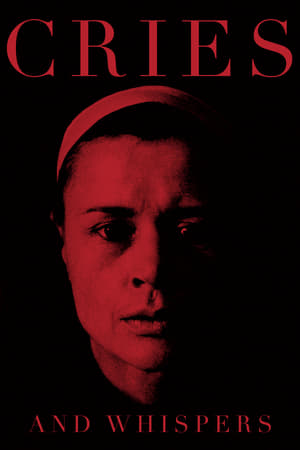
Cries and Whispers
Ingmar Bergman's 1972 film Viskningar och rop (Cries and Whispers) was one of the auteur's major achievements of that decade. In a Swedish country house, the dying Agnes (Harriet Andersson) is visited by her two sisters, the sensual and impulsive Karin (Liv Ullmann), and the stern and frigid Maria (Ingrid Thulin). Though ostensibly there to comfort Agnes in her last days, they are essentially just waiting for her to die, as they are too more preoccupied with their unhappy marriages, their mysterious personal feud, and the specifics of dividing up the estate. It falls to Agnes' devoted maid Anna (Kari Sylwan) to provide any human warmth. One of the most emotionally touching aspects of the film is this contrast between the selfless love of a member of a despised underclass and the indifference (or outright disgust) expressed by Agnes' own family. Bergman had made the transition to colour film with En Pasion of three years earlier, but Viskningar och rop finally exploits its possibilities. Red is ever present on screen, whether in the red wing of the house in which Agnes lies dying, the red transitions between scenes, or the vivid blood that flows in each of the sisters' flashbacks to the decay of their marriages. Sven Nykvist's cinematography is, as always, brilliant. And though one doesn't often think of the makeup artist in a Bergman film, whoever worked on this one deserves praise for making such a glamorous actress as Harriet Andersson (still in her late 30s then and quite glamorous) look convincingly decrepit. Bergman considered Viskningar och rop one of his two greatest films, along with 1966's Persona. I must say, however, that I have never ranked it so highly. While Viskningar och rop continues to amaze me on every viewing, Viskningar och rop does tend to exhaust its overt symbolism and interpersonal dynamics right away, and I rarely come back to it. Furthermore, I feel Bergman wove too much of this film out of what had become stock gestures for him, such as incestuous siblings, and a man speaking about the need to trust God when he himself has lost faith.
